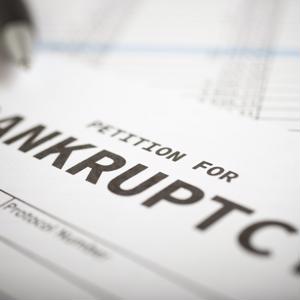
Experts urge lawmakers to ease chapter 11 bankruptcy strictures
April 18, 2018 10:48 am Leave your thoughts
The high-pressure retail landscape has forced several well-known franchises to file for bankruptcy protection, with fast-casual restaurant chain Bertucci's and Toys "R" Us two of the more recent examples. But filing for chapter 11 is no drop in the bucket, and it's particularly costly for small-business owners, an issue that has come to the attention of legislators on Capitol Hill.
Speaking to the Senate Judiciary subcommittee on Oversight Agency Action in March, a panel of bankruptcy experts informed lawmakers that due to overly burdensome regulatory strictures, financially struggling entrepreneurs often find themselves stuck between a rock and a hard place, unable to continue operations as constituted but also unable to afford to file for bankruptcy, The Wall Street Journal reported.
Robert Keach, a bankruptcy attorney who practices in Maine, noted how bankruptcy can often be the best move financially and strategically, but the cost of chapter 11 forces owners to make different decisions that may not be in their interest because they don't want to be in an untenable position where they have to sell.
"The current bankruptcy code does little for these companies when they fall into financial distress," Keach explained, as reported by the WSJ. Putting data to the increasingly common predicament, Keach added around 90 percent of companies in chapter 11 have property that's valued at $10 million or less.
Chapter 11 filings jump 22 percent in first quarter
Evidenced by a booming stock market and a 17-year low unemployment rate, the U.S. economy is doing much better in recent years, particularly when compared to the Great Recession, when the jobless picture at one point reached 10 percent. Higher earnings and increased work productivity may explain why bankruptcy filings fell 4 percent in the first quarter compared to the first three months of 2017, according to figures from the American Bankruptcy Institute.
At the same time, though, chapter 11 filings rose, climbing 22 percent between Jan. 1 and March 31 versus the corresponding period last year.
Chapter 11 is one of the more popular bankruptcy varieties because it enables companies to keep their doors open while debts get restructured. It's a particularly common strategy for partnerships, sole-proprietorships and corporations, according to the Administrative Office of the U.S. Courts.
Experts say chapter 13 serves as blueprint
The rules of chapter 11, however, can leave businesses cash-strapped, bankruptcy experts told the subcommittee, making already financially stressful situations that much worse. To soften the blow, D.C.-based lawyer Craig Goldblatt told lawmakers chapter 11 should ideally mimic what chapter 13 does for individuals, giving them several years to pay off their back payments so they don't have to foreclose, the Journal reported. The panel also recommended small businesses be afforded more latitude when filing for chapter 11 by reducing the amount of paperwork that they currently must produce.
Small businesses may spend well over $100,000 to file for bankruptcy."
Chapter 11 actions have fallen substantially in the years since the economic downturn. In 2012, for example, there were slightly over 10,000 filings across the country, according to the ABI. Last year, the total was 6,795. In year-to-date figures, around 1,822 were completed through March, up from the 1,534 through the first quarter of 2017.
Bankruptcies come in several varieties and the costs of filing depend on the type. In general, though, it's not unusual for small businesses to spend between $100,000 and $300,000 if the end goal is keeping the company up and running while debt gets restructured, the Journal reported.
Bankruptcy is a huge decision that can have lasting repercussions. The personal asset protection lawyers at the Law Offices of Donald W. Hudspeth has the experience and wherewithal to keep capital safe from harm. We'll work with you to ensure you keep your business afloat so creditors don't come calling.
Categorised in: Asset & Liability Protection, Dissolution & Partnership Disputes
This post was written by





